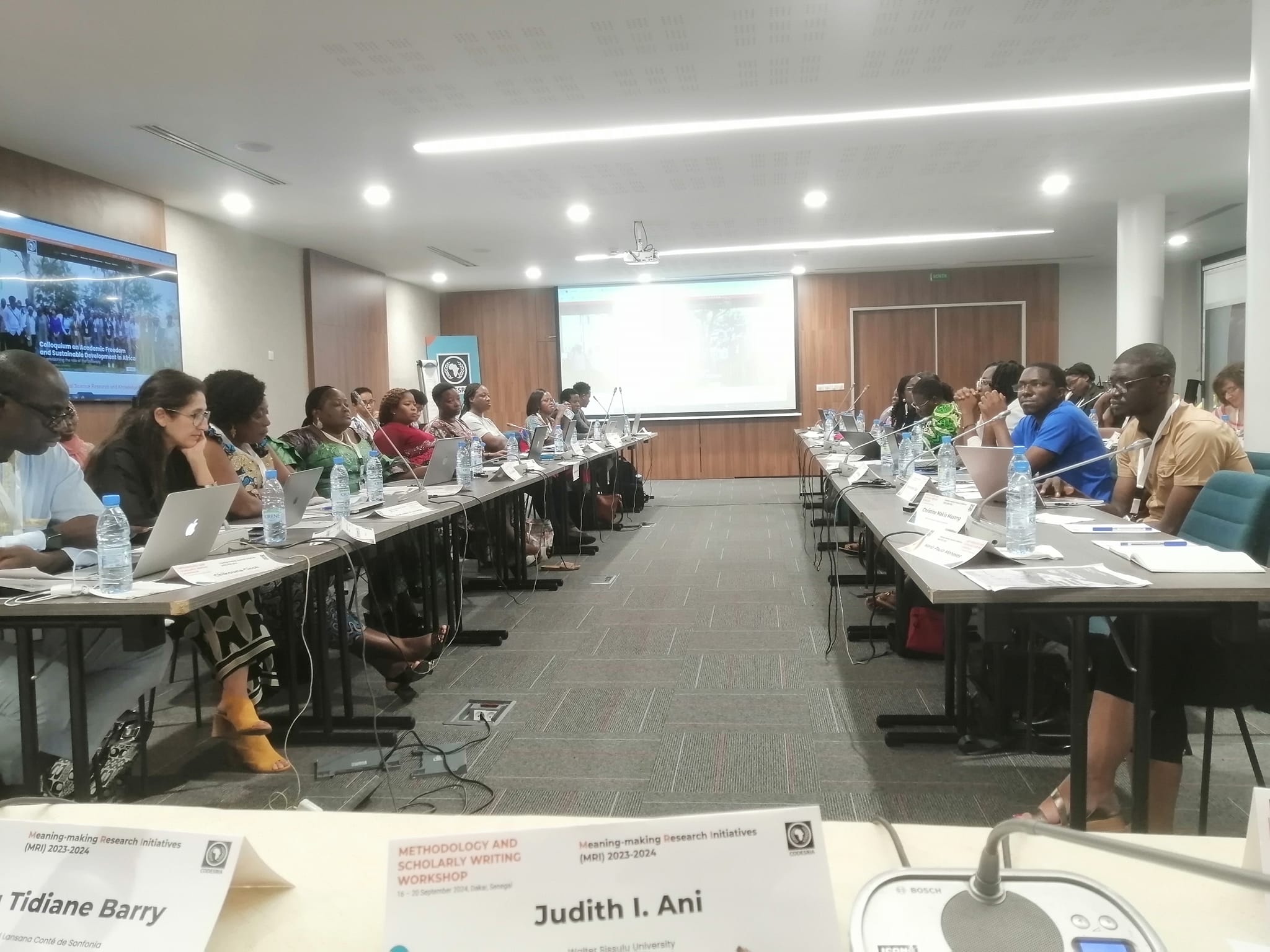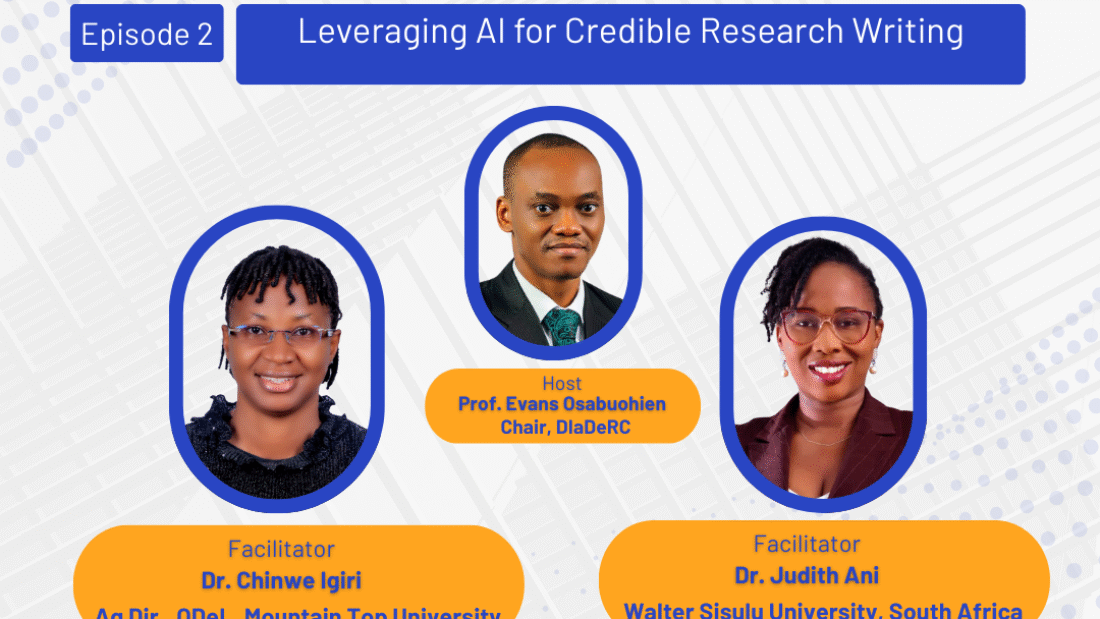
In a rapidly evolving digital world, artificial intelligence (AI) has become a defining force in how research is conceived, developed, and disseminated. Recognizing this, the African Scholars Mentorship Network (ASMN) under the DePECOS Institutions and Development Research Centre (DIaDeRC), in collaboration with C-SET (Centre for Socially Engaged Theatre), University of Regina, and Mobile Research Lab, hosted Episode 2 of its Bootcamp 6.0 series on “Leveraging AI for Credible Research Writing.”
The virtual session, held on November 2, 2025, featured two dynamic facilitators — Dr. Chinwe Igiri, Acting Director, ODeL at Mountain Top University, and Dr. Judith Ani of Walter Sisulu University, South Africa — with Prof. Evans Osabuohien, Chair of DIaDeRC, serving as host.
Exploring AI’s Role in Research
AI is reshaping every phase of the research process — from brainstorming and literature synthesis to data analysis and grant writing. As Dr. Judith Ani emphasized in her presentation, “AI can serve as a co-thinker, assistant, and collaborator — not a replacement.”
The session unpacked how postgraduate students and emerging scholars can use generative AI tools like ChatGPT to enhance clarity, structure, and efficiency in research writing. However, participants were cautioned against blind reliance on AI outputs, which may contain fabricated data or hallucinated citations.
Balancing Innovation with Integrity
A recurring theme in the discussion was academic integrity. Dr. Ani noted that “Full disclosure is required — hidden or unverified AI use amounts to academic misconduct.” Scholars were encouraged to always document which AI tools they use, the purpose, and how outputs were verified.
Key ethical practices highlighted include:
- Disclosing the AI tool, version, and use case in the methodology or acknowledgments section.
- Verifying all AI-generated claims and cross-checking references.
- Maintaining human oversight and disciplinary grounding.
- Avoiding plagiarism or mechanical writing that lacks originality.
AI Misuse and Cautions
Dr. Ani presented real-life cases illustrating AI misuse. In one instance, a lawyer in New York faced penalties for submitting fake AI-generated citations. Another involved a professor who wrongly failed students based on ChatGPT’s false confirmation. These cases underscored AI’s lack of a truth filter and the necessity of human verification.
Using AI Smartly
Participants were guided on prompt engineering — crafting precise and contextual prompts that yield relevant outputs. Dr. Ani demonstrated how researchers can use AI to refine research questions, improve clarity, and structure grant proposals, but always rewrite in their own voice and retain contextual insight.
Practical tips included:
- Keeping a log of AI prompts and outputs.
- Using AI for clarity, not content creation.
- Discussing AI use openly with supervisors and collaborators.
What Funders Are Saying
Dr. Ani also shared insights from funding agencies that have begun flagging overly AI-generated proposals. Funders reportedly favour authenticity, conceptual depth, and contextual relevance over polished but shallow writing. The key takeaway: AI fluency does not equal research credibility.
Final Reflections
The session closed with a compelling reminder from Dr. Ani: “AI won’t replace you, but someone who uses it well might.” Participants were urged to balance efficiency with integrity, always disclosing and validating AI-assisted outputs. The Bootcamp reaffirmed ASMN’s commitment to nurturing responsible and innovative African researchers who can harness technology ethically and effectively.

